User Research
Libraries are impacted by the ways in which individuals engage with technology; how they seek, access, contribute, and use information; and how and why they demonstrate these behaviors and do what they do. We're collaborating with librarians to shape their services around a set of expectations that have been influenced by consumer technologies and modern research and learning environments. By providing the library community with behavioral evidence about individuals’ perceptions, habits, and requirements, we can ensure that the design of future library services is all about the user. Our efforts are amplified by strategic partnerships and focus in these two areas:
Publications
-
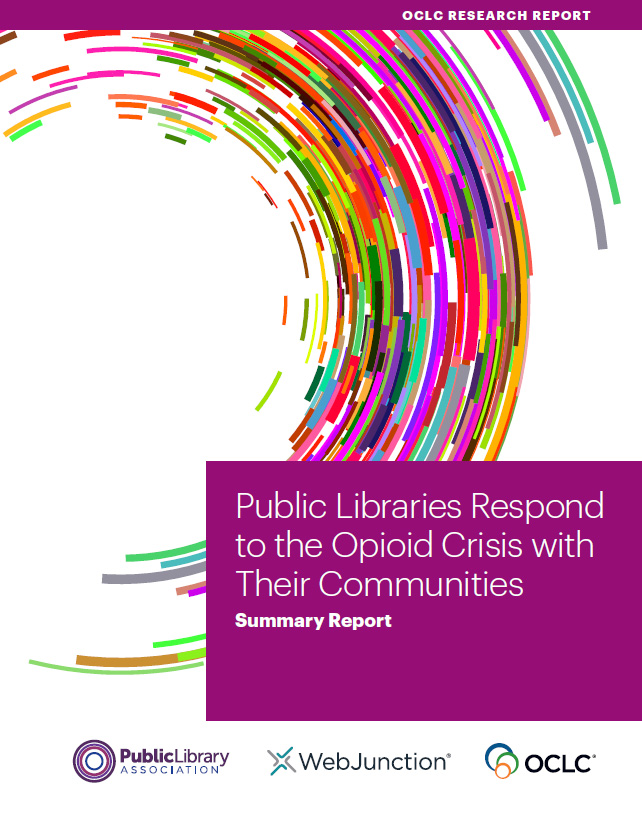
Public Libraries Respond to the Opioid Crisis with Their Communities: Summary Report
29 October 2019
Scott G. Allen, Larra Clark, Michele Coleman, Lynn Silipigni Connaway, Chris Cyr, Kendra Morgan, Mercy Procaccini
As the impact of the opioid epidemic is felt in communities across the US, public libraries are choosing to be part of the community response. With funding from the Institute of Museum and Library Services, and in partnership with the Public Library Association (PLA), OCLC is sharing knowledge and resources that will help public libraries and their community partners develop effective strategies to address the opioid epidemic in America.
-
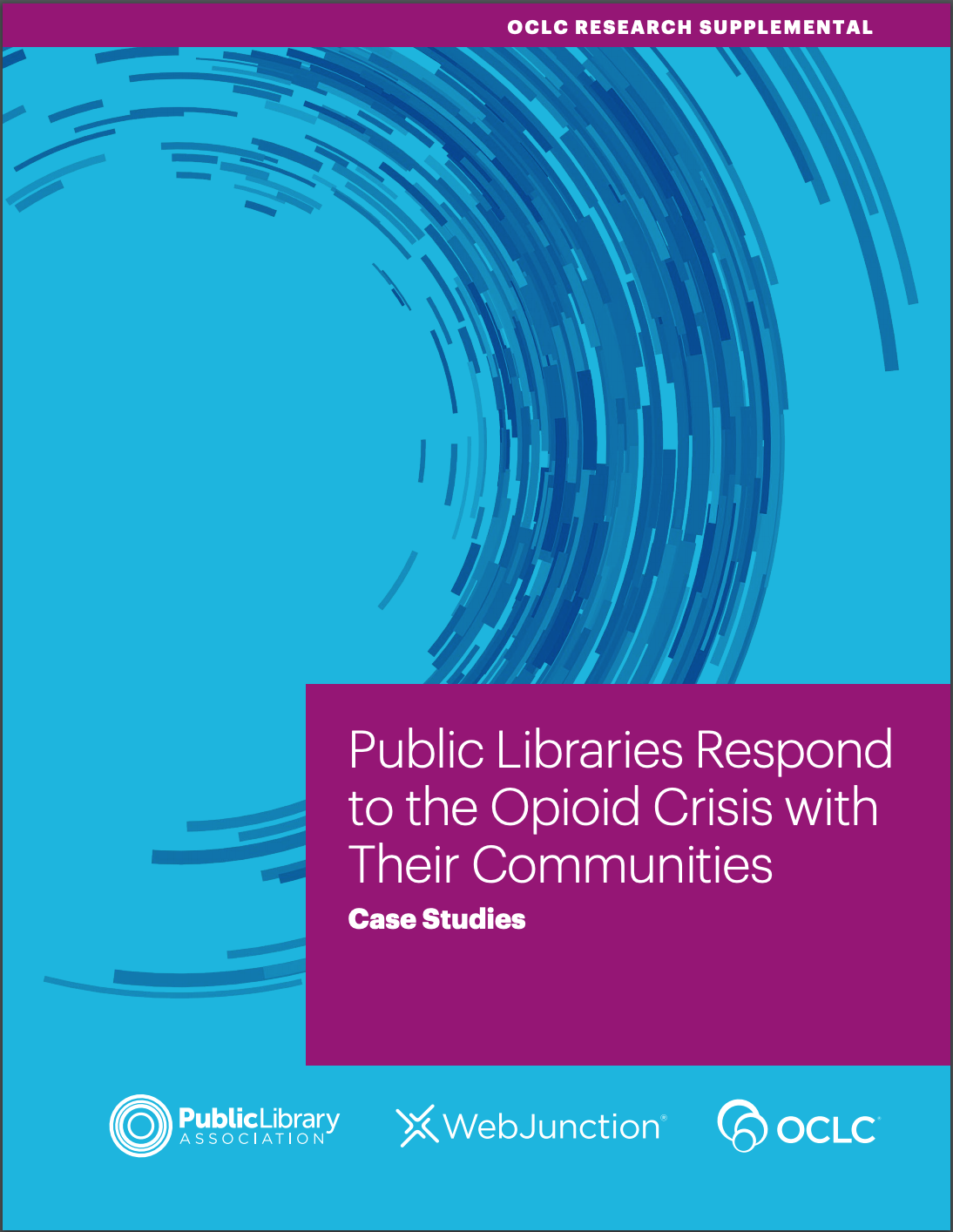
Public Libraries Respond to the Opioid Crisis with Their Communities: Case Studies
28 October 2019
Scott G. Allen, Larra Clark, Michele Coleman, Lynn Silipigni Connaway, Chris Cyr, Kendra Morgan, Mercy Procaccini
This report includes eight research-based case studies highlighting varying opioid response efforts across eight locations in the US. The report details each library's response, the partnerships formed, reactions of the community, outcomes of the efforts, as well as challenges, needs, and opportunities.
-
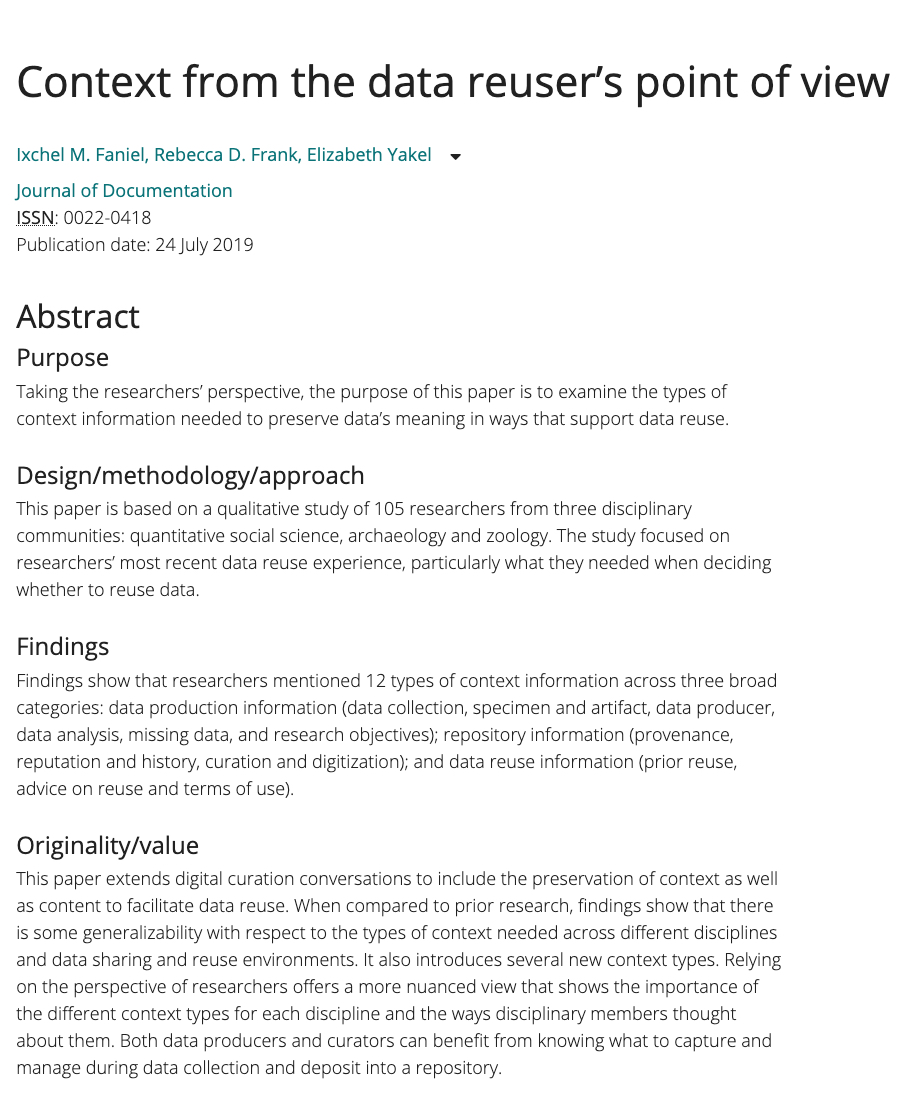
Context from the Data Reuser’s Point of View
26 September 2019
Ixchel M. Faniel, Rebecca D. Frank, Elizabeth Yakel
Context is critical for data reuse, and digital curation should include both context and content preservation. Both data producers and curators benefit from expanding context categories to better determine what information is vital to capture and manage during data collection to support data reuse.
-
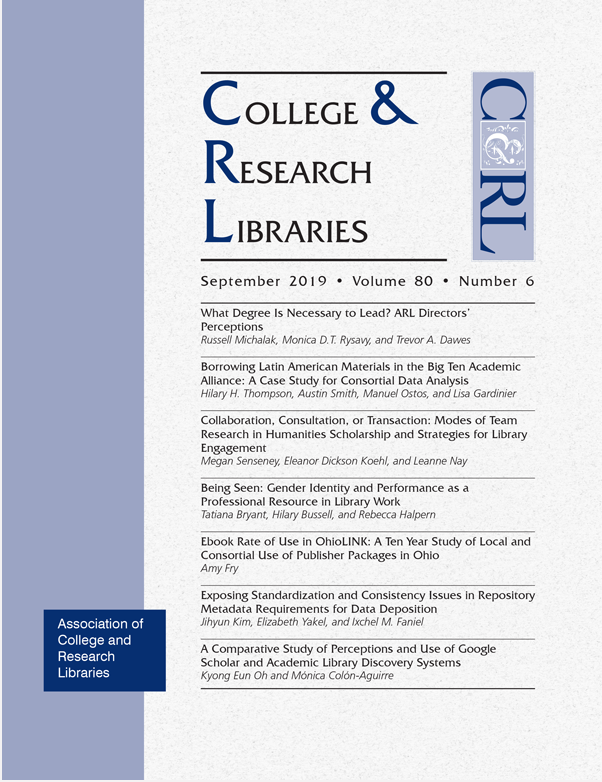
Exposing Standardization and Consistency Issues in Repository Metadata Requirements for Data Deposition
1 September 2019
Jihyun Kim, Elizabeth Yakel, Ixchel M. Faniel
In this article in College & Research Libraries Journal, the authors examine common and unique metadata requirements and their levels of description, determined by the data deposit forms of 20 repositories in three disciplines—archaeology, quantitative social science, and zoology.
-
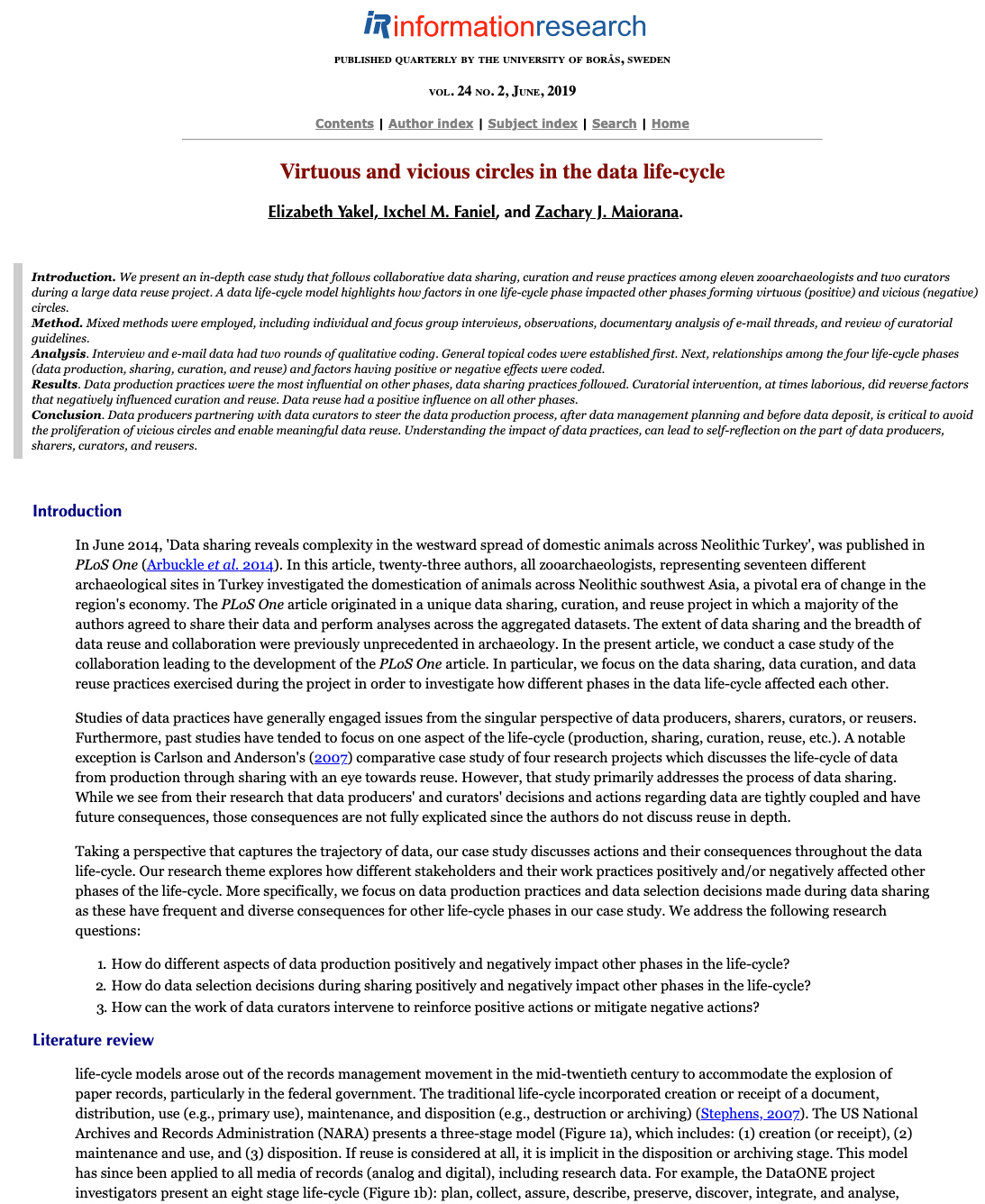
Virtuous and Vicious Circles in the Data Life-cycle
2 June 2019
Elizabeth Yakel, Ixchel M. Faniel, Zachary J. Maiorana
A data life cycle model illustrates how factors in one data life cycle phase impacts other phases, forming virtuous (positive) and vicious (negative) circles. This method comprehensively studies how data producers, sharers, curators, and reusers can better collaborate across data life cycle phases.
-
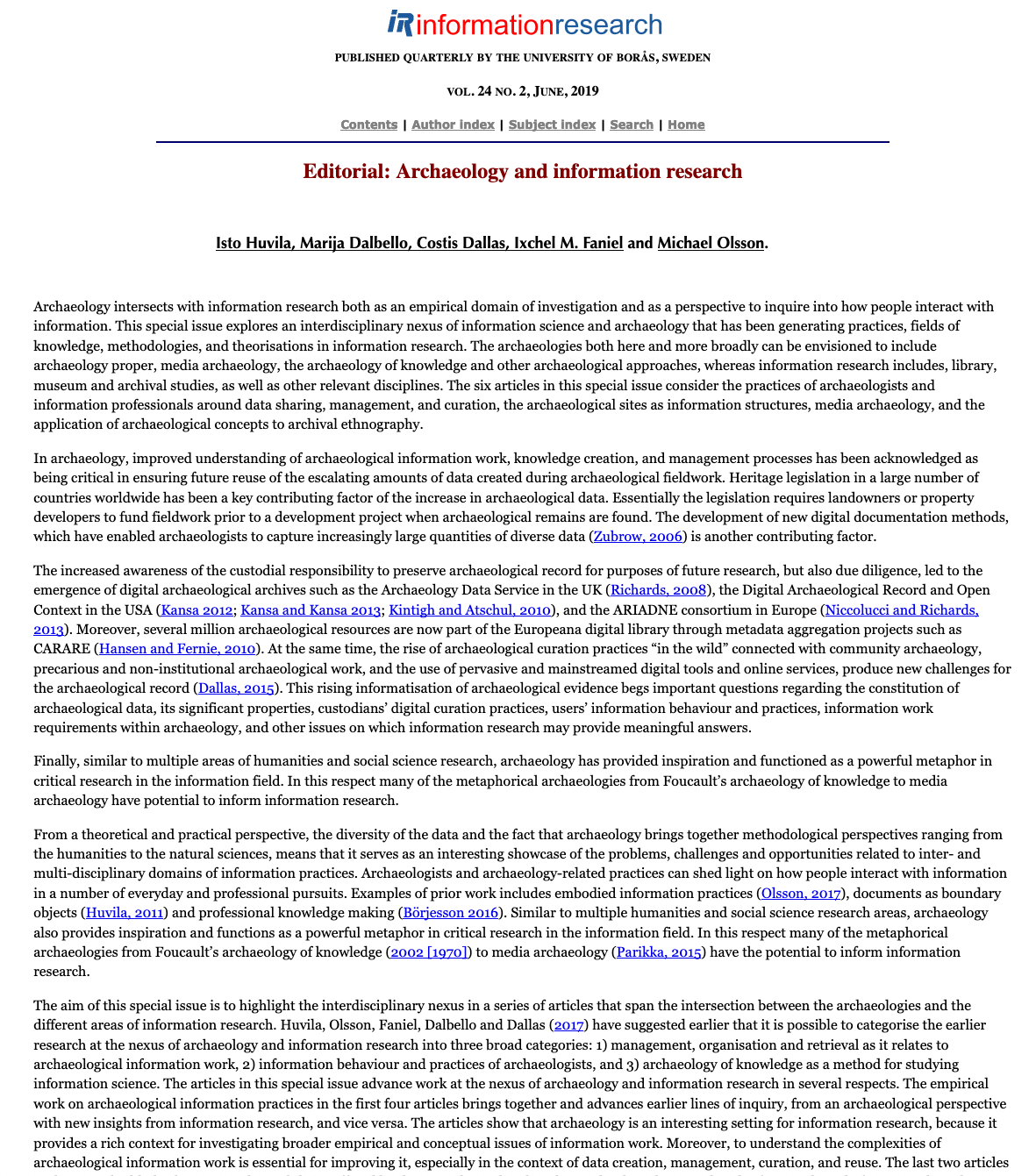
Editorial: Archaeology and Information Research
1 June 2019
Isto Huvila, Marija Dalbello, Costis Dallas, Ixchel M. Faniel, Michael Olsson
This editorial provides an overview of an issue of Information Research that studies the interdisciplinary nexus of archaeology and information research. This includes shared methods of data sharing, management, and curation; archaeological sites as information structures; media archaeology; and archaeological concepts in archival ethnography.
-
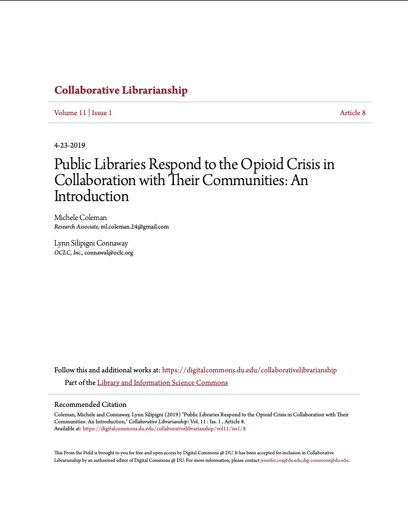
Public Libraries Respond to the Opioid Crisis in Collaboration with Their Communities: An Introduction
27 April 2019
Michele Coleman, Lynn Silipigni Connaway
OCLC is partnering with the Public Library Association on the Public Libraries Respond to the Opioid Crisis with Their Communities project to identify, synthesize, and share knowledge and resources with public libraries to develop effective strategies to address the opioid epidemic in America.
-
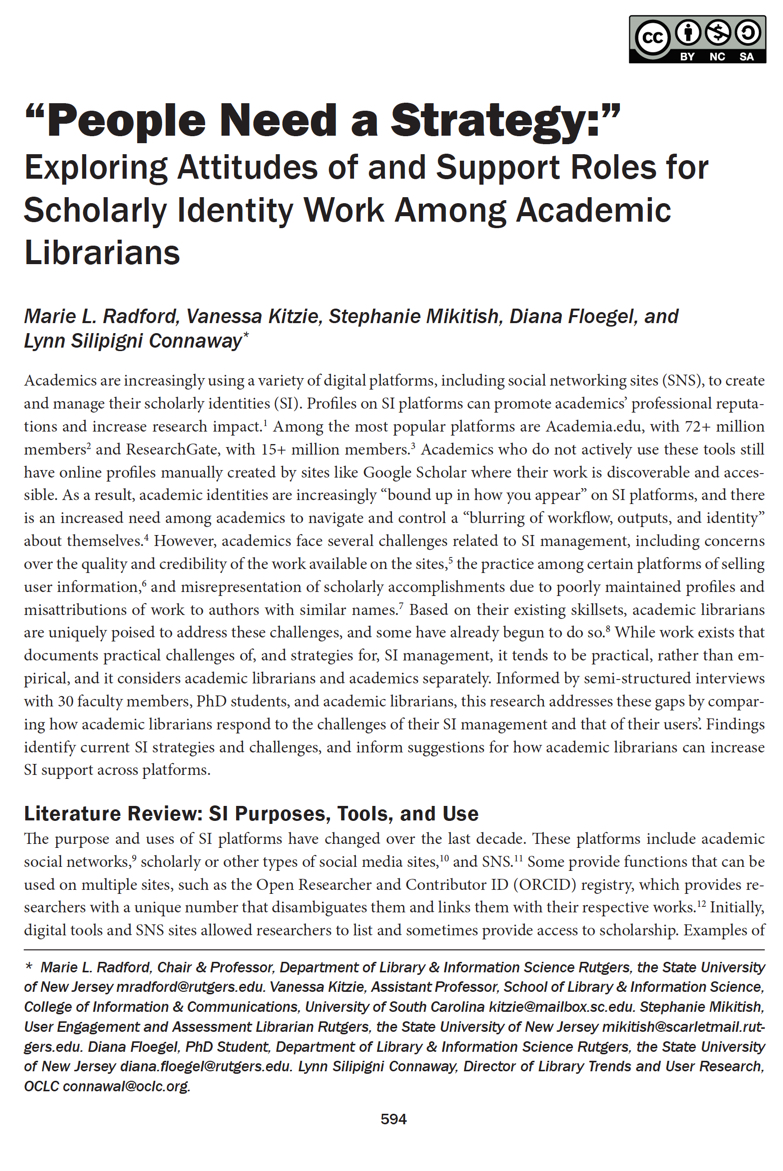
'People Need a Strategy:' Exploring Attitudes of and Support Roles for Scholarly Identity Work Among Academic Librarians
10 April 2019
Marie L. Radford, Vanessa Kitzie, Stephanie Mikitish, Diana Floegel, Lynn Silipigni Connaway
Academics increasingly use digital platforms and social networking sites to manage their scholarly identities (SI). This empirical study proposes that academic librarians can assist in digital SI management and identifies strategies for librarians to increase SI support across platforms.
-
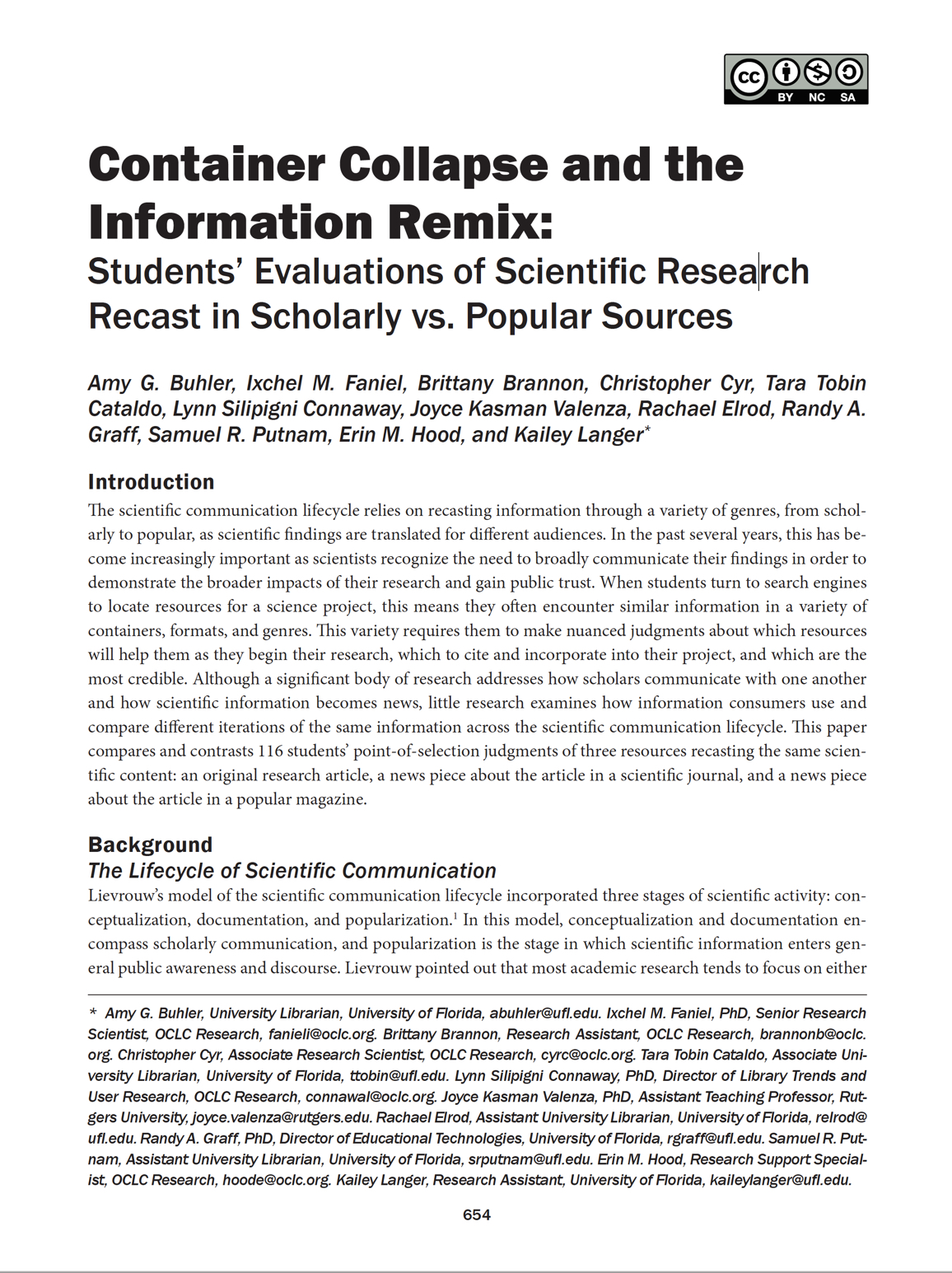
Container Collapse and the Information Remix: Students’ Evaluations of Scientific Research Recast in Scholarly vs. Popular Sources
10 April 2019
Amy G. Buhler, Ixchel M. Faniel, Brittany Brannon, Christopher Cyr, Tara Tobin Cataldo, Lynn Silipigni Connaway, Joyce Kasman Valenza, Rachael Elrod, Randy A. Graff, Samuel R. Putnam, Erin M. Hood, Kailey Langer
A scientific communication life cycle publishes results in a variety of containers, formats, and genres to reach diverse audiences. This paper examines 116 students’ selection of scholarly and popular scientific content to compare how consumers use resources across the communication life cycle.
-

Investigating Practices for Building an Ethical and Sustainable Scholarly Identity with Online Platforms and Social Networking Sites
1 February 2019
Marie L. Radford, Vanessa Kitzie, Stephanie Mikitish, Diana Floegel, Gary P. Radford, Lynn Silipigni Connaway
Informed by 30 semi‐structured interviews with faculty, Ph.D. students, and academic librarians, this exploratory research examines how individuals create, cultivate, and manage their scholarly identity (SI) using online platforms.